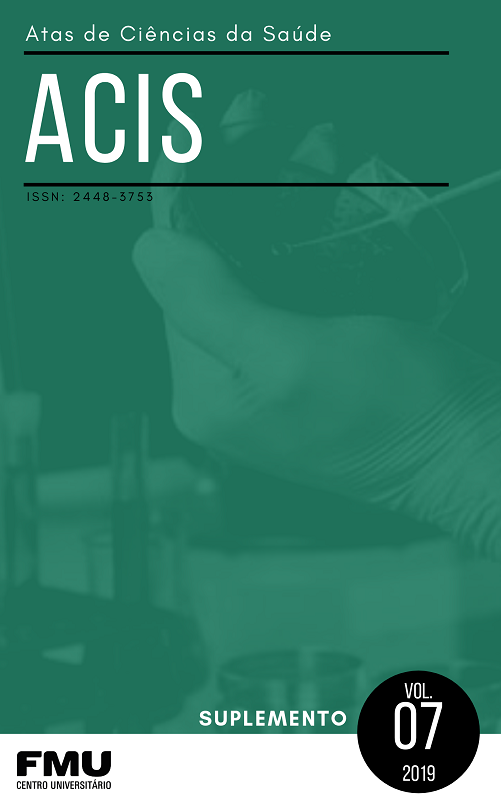A BASE NACIONAL COMUM CURRICULAR E A ÁREA DE CIÊNCIAS DA NATUREZA: TECENDO RELAÇÕES E CRÍTICAS
Palavras-chave:
chave Base Nacional Comum Curricular, ensaio critico, currículo investigativo, currículo tecnicistaResumo
A Base Nacional Comum Curricular (BNCC) foi homologada em Dezembro de 2017 pelo Ministério da Educação. A leitura crítica da BNCC, especialmente a disciplina de ciências nos anos finais do Ensino fundamental gerou o presente ensaio. Na BNCC há contradição entre propostas de currículo. Há trechos com proposta curricular crítica engajada em questões sóciocientíficas ambientais. Contudo na maioria da BNCC oferece um currículo tecnicista. Isto se dá pelas inúmeras habilidades na disciplina de Ciências nos anos finais do Ensino Fundamental, junto í s quais falta esclarecimento do modo investigativo de aplica-las. Na BNCC as concepções de Ciência Tecnologia Sociedade e Ambiente (CTSA) é entendida de modo reducionista principalmente, pelo pouco esclarecimento da ação antrópica nos desastres naturais e nem os embates entre os especialistas e as demandas sociais no processo histórico das ciências. Há apagamento das diferenças minoritárias na BNCC, pois considera que todos os alunos dos anos finais do E.F estão no mesmo grau de abstração intelectual.
Referências
Auler, D. & Delizoicov, D. (Janeiro, 2001) Alfabetização Científico-Tecnológica para quê? Ensaio_ Pesquisa em Educação em Ciências, 3(1), pp. 122-134. Disponível em http://www.scielo.br/pdf/epec/v3n2/1983-2117-epec-3-02-00122.pdf.
Brasil (2017). Base Nacional Comum Currícular [BNCC]. Brasília. Disponível em http://basenacionalcomum.mec.gov.br/wp-content/uploads/2018/02/bncc-20dez-site.pdf.
Bybee, R.W (2006). Scientific inquiry and sience teaching. IN: Flick, L.D.,Lederman, N. Ederman, N.G. Scientific inquiry and nature of science: Implications for teaching, learning and teacher education. Netherlands: Springer, 2006. p. 1-14.
Carter, April (2001) The Political Theory of Global Citizenship. London: Routledge
Deboer, George (2006). Historical perspectives on inquiry teaching in schools. IN: FLICK, L.D., LEDERMAN, N. G. Scientific inquiry and nature of science: Implications for teaching, learning and teacher education. Netherlands: Springer,. p. IX-XVIII.
Driver, Rosalind; Asoko, Hilary; Leach, John; Mortimer, Eduardo; Scott, Philip (1999). Construindo conhecimento científico na sala de aula. Química nova na escola, n.9, p. 31-40.
Fanghanel, Joëlle and Cousin, Glynis (2012)"˜Worldly"™ pedagogy: a way of conceptualising teaching towards global citizenship. Teaching in Higher Education, 17:1, 39-50.
Froese-Germain, Bernie (2010).The OECD, PISA and the Impacts on Educational Policy. Canadian Teachers Federation. Disponível em: http://eric.ed.gov/?id=ED532562
Jiménez-Aleixandre, M.P (E.d) (2008). Argumentation in Science Education: Perpectives from Classroom-Based Research. Dordretch: Springer, 2008.p.179-200
Manzoni-de-Almeida, Daniel. (2016). O desenvolvimento da escrita argumentativa nas aulas de imunologia do ensino superior por metodologias ativas. Rev. Comp. Docência., 1(2): 3-19.
Munford, Danusa, Lima, Maria Emília Caixeta de Castro. Ensinar ciências por investigação: em quê estamos de acordo? Revista Ensaio. V 7, n.1. 2007
Nilson, I.A. (2015). Constructing Global Citizenship Education: An Analysis of OECD Discourse on Global Competence.STVK 12, pp. 1- 36. Disponível em https://lup.lub.lu.se/student-papers/search/publication/7794066
OECD (2015) About the OECD OECD. Disponível em: http://www.oecd.org/about/history/
Pádua, Gelson Luiz D. (2009). A epistemologia genética de Jean Piaget. Revista FACEVV, Número 2, p. 22-35. Disponível em: https://s3.amazonaws.com/academia.edu.documents/39349855/A_EPISTEMOLOGIA_GENETICA.pdf?AWSAccessKeyId=AKIAIWOWYYGZ2Y53UL3A&Expires=1555969079&Signature=ZZOjq4tPO%2Fntp7W71v8g7wG3VGM%3D&response-content-disposition=inline%3B%20filename%3DA_EPISTEMOLOGIA_GENETICA.pdf
PISA; INEP (2015). Matriz de Avaliação de Ciências. Disponível em http://download.inep.gov.br/acoes_internacionais/pisa/marcos_referenciais/2015/matriz_de_ciencias_PISA_2015.pdf
Reimers, Fernando M. (2013) Assessing Global Education: an Opportunity for the OECD OECD strategy paper. Available at : http://www.oecd.org/pisa/pisaproducts/pisa-2018-documents-forbidders.htm
Santos Junior, J.B & Marcondes, M.E.R(Setembro-Dezembro, 2010). Identificando os modelos didáticos de um grupo de professores de química. Revista Ensaio: Belo Horizonte. 12(3), pp. 101-116. Disponível em http://www.scielo.br/pdf/epec/v12n3/1983-2117-epec-12-03-00101.pdf
Santos, Wildson Luiz Pereira. Significados da educação científica com enfoque CTS. In Santos, L.P. dos, Auler, D (Eds). CTS e educação científica: desafios, tendências e resultados de pesquisa (pp.21-47). Disponível em https://www.researchgate.net/publication/291958339_De_CTS_a_CTSA_Educacao_por_um_futuro_sustentavel
Silva, F.A.R. (2011). O Ensino de Ciências por investigação na educação superior: um ambiente para o estudo da aprendizagem científica. Tese. Universidade Federal de Minas Gerais. Belo Horizonte,.
Vilches, A., Pérez, D.G & Praia, J.(2011) De CTS a CTSA: educação para um futuro sustentável. In Santos, L.P. dos, Auler, D (Eds). CTS e educação científica: desafios, tendências e resultados de pesquisa (pp. 161- 184). Disponível em https://www.researchgate.net/publication/291958339_De_CTS_a_CTSA_Educacao_por_um_futuro_sustentavel
Weeks, Jeffrey (2000). O corpo e a sexualidade. In: LOURO, Guacira Lopes (Org.). O corpo educado: pedagogias da sexualidade. 2.ed. Tradução dos artigos: Tomaz Tadeu da Silva. Belo Horizonte: Autêntica, p. 35-82.
Downloads
Publicado
Edição
Seção
Licença
Autores que publicam nesta revista concordam com os seguintes termos:
- Autores mantém os direitos autorais e concedem à revista o direito de primeira publicação, com o trabalho simultaneamente licenciado sob a Licença Creative Commons Attribution que permite o compartilhamento do trabalho com reconhecimento da autoria e publicação inicial nesta revista.
- Autores têm autorização para assumir contratos adicionais separadamente, para distribuição não-exclusiva da versão do trabalho publicada nesta revista (ex.: publicar em repositório institucional ou como capítulo de livro), com reconhecimento de autoria e publicação inicial nesta revista.
- Autores têm permissão e são estimulados a publicar e distribuir seu trabalho online (ex.: em repositórios institucionais ou na sua página pessoal) a qualquer ponto antes ou durante o processo editorial, já que isso pode gerar alterações produtivas, bem como aumentar o impacto e a citação do trabalho publicado (Veja O Efeito do Acesso Livre).





